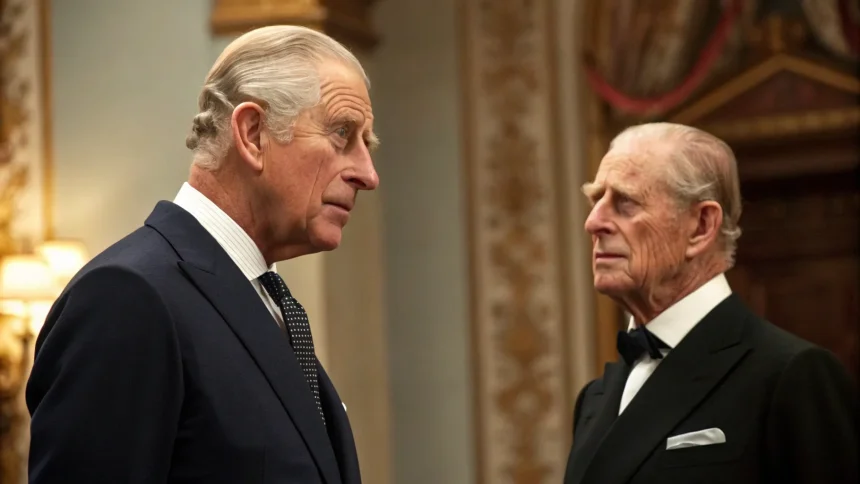The complex relationship between King Charles III and his late father, Prince Philip, Duke of Edinburgh, has long been a subject of public interest. Their strained father-son dynamic, particularly during Charles’s formative years, has become part of royal family lore.
The tensions between the current monarch and his father have been widely documented by royal biographers and historians. These personal struggles within the House of Windsor offer a glimpse into the private lives behind the public personas of two of Britain’s most prominent royal figures.
A Dramatized Royal Conflict
Netflix’s popular series “The Crown” brought renewed attention to this complicated relationship, portraying the friction between the sensitive, artistic young Charles and his more traditional, stoic father. The show depicted Prince Philip as a demanding parent who struggled to understand his son’s temperament and interests.
While “The Crown” takes creative liberties with historical events, many royal experts confirm that the fundamental dynamic portrayed—a clash of personalities and expectations—reflects the actual challenges in their relationship.
The dramatization highlights several reported points of contention:
- Philip’s insistence on sending Charles to his alma mater, Gordonstoun School in Scotland, despite Charles reportedly finding the experience difficult
- Differences in their approaches to duty and royal responsibilities
- Contrasting personalities—Philip’s no-nonsense practicality versus Charles’s more sensitive, philosophical nature
Beyond Fiction: The Real Relationship
Royal biographers suggest that while the Netflix series captured the essence of their differences, the reality was more nuanced. Despite their conflicts, father and son maintained a relationship built on mutual respect for their roles within the monarchy.
As Charles matured and established himself as the Prince of Wales, their relationship reportedly evolved. In his later years, Prince Philip became more accepting of Charles’s vision for the monarchy, though differences in their approach to royal duties remained.
“They were two very different men with two very different worldviews,” noted one royal historian. “Philip was shaped by naval discipline and traditional values, while Charles developed more progressive ideas about the monarchy’s role in modern society.”
The death of Prince Philip in April 2021 at age 99 marked the end of this complex father-son story. In public tributes following his father’s passing, King Charles spoke with evident emotion about Prince Philip’s dedicated service to the Crown and his influence as a father.
Impact on Charles as Monarch
Analysts of the British monarchy suggest that these early experiences with his father helped shape Charles’s own approach to kingship. His decades as heir apparent gave him time to develop his own vision for the monarchy—one that both honors tradition while adapting to contemporary expectations.
Now as King Charles III, he faces the challenge of leading the royal family into a new era, carrying forward lessons from his relationship with Prince Philip while establishing his own legacy. The personal struggles between father and son have become part of the broader narrative of royal family dynamics that continue to fascinate the public.
As the monarchy moves forward under Charles’s reign, the influence of his complicated relationship with Prince Philip remains an important piece of understanding the man who now wears the crown.









